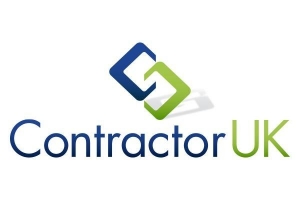The government has been told to end “significant financial hardship” for 710,000 limited companies, inflicted by it barring their dividends from its Coronavirus Job Retention Scheme.
Although calls for the CJRS to cover the main way in which limited company directors pay themselves have been heard before, this time they are from the Treasury Select Committee.
Chaired by a historically anti-contractor figure Mel Stride MP, the committee said yesterday that while PSC directors can furlough themselves, the “benefits are likely to be minimal.”
'The Treasury does not know'
Mainly, that’s because directors “take a large part of their income in dividends” but, under CJRS, “are only entitled to claim …the typically small PAYE component of their income.”
Despite its eligibility criteria being well-established, “the Treasury does not know how many people” fall foul of it, said Mr Stride, possibly embarrassed given he used to work at HMT.
“The impact of the lack of support for company directors was predictable even [way] back then in March 2020,” tax dispute specialist Jesminara Rahman told ContractorUK yesterday.
'Not enough to support directors'
As director of Tax Resolute UK, she also said: “HMRC indicated that if a salary is claimed -- even if a minimum salary, the director can access the job retention scheme.
“But we…have seen that this may not be a possibility for the director, or simply the amount is not enough to support the director through the…months of this coronavirus pandemic.”
Pointed out that, for some PSC directors, it might seem a bit late in the day to now be looking at including dividends in a scheme which has already closed to new entrants, Qdos disagreed.
'Better late than never'
“I get the sense that any help would be appreciated”, said the status advisory’s Seb Maley, responding to questions. “Would support not be better late than never than not at all?”
IR35 expert Kate Cottrell isn’t entirely sure it would. “I would say be careful what you wish for here.
“The payment of dividends means that you have decided that IR35 does not apply to your engagements, so you’re not a ‘disguised employee’ of your client and are a genuine business.
“To benefit from the CJRS, are you now saying that the amount paid in dividends was in fact your income?” she asked. “How would you explain this to HMRC in an IR35 investigation?”
'IR35 status'
The Bauer & Cottrell co-founder also said that for some PSCs, it may be worth calculating the difference between inside/outside IR35 plus:
“If you got [your] IR35 status wrong, how much you would be charged by HMRC to include tax/NIC, interest, and penalties versus the amounts you can claim under the support scheme.”
Adding a note of caution, the former tax inspector advised: “There are going to be an awful lot of compliance checks carried out by HMRC to police the support schemes and no doubt IR35 will also be considered.
“Hopefully, if support is to be provided, HMRC will not conflate the two issues but I am not holding my breath.”
'HMRC will be under increased pressure'
At Qdos, which similarly runs IR35 contract reviews, Mr Maley agreed: “Taking into account the cost of the crisis to the Treasury, it’s highly likely that the tax office will be under increased pressure to raise tax receipts.
“Given IR35, for example, is an area in which HMRC believes there is deliberate and huge non-compliance, it wouldn’t be a surprise if the tax office was to focus a proportion of its efforts here,” he said.
The resources which the Revenue has at its disposal are mentioned in the committee’s report – initially to reiterate the taxman’s stance on why dividends aren’t covered by the CJRS.
'Significant losses'
But lack of resources is also given by HMT as the grounds for not adopting a proposal by IPSE, in relation to how dividends might be covered by the furlough scheme.
The contractor trade body had its estimate of 710,000 accepted (as the number of PSCs excluded from any or much CJRS support), but its ‘clawback’ proposal is still on the shelf.
In fact, the committee’s report quotes the chief secretary to the Treasury, Steve Barclay, as saying the clawback could, “create significant losses due to error, fraud and criminal attack.
'Accept and implement the clawback'
Mr Barclay also spoke of “high risk that incorrect or fraudulent payments could not be recovered,” and that “manual compliance checks would be highly resource intensive for HMRC”.
But despite being unmoved by the appeals of contractors in the past, Mr Stride clearly thinks it’s a price HMRC must pay if PSCs are going to survive and help the economy thrive.
“While we recognise that this approach may require significant resources,” began the former Treasury minister, referring to IPSE’s clawback (a “ready-made solution” he believes), “we urge the government to accept and implement this proposal.
“While it will have immediate cost implications, it could mitigate future economic scarring and safeguard future tax revenues.”
'Precarious'
Mr Stride added that many of the individuals affected by the CJRS (and SEISS) not adequately compensating them through the covid-19 pandemic “have a key role to play in firing up the economy,” but currently face, “significant financial hardship.”
He said the government must find a “practical solution” to support the “hundreds of thousands” of such independent workers who are going without.
“It’s a precarious situation,” confirmed Tax Resolute’s Ms Rahman. “The recovery of the economy will have to factor-in the recovery of these same entrepreneurs, company directors and self-employed.”
“What’s being overlooked is the economic value of this group,” agreed Qdos’ Mr Maley.
“The UK is going to need the flexibility and skills of freelancers and contractors as it looks to repair the economic damage caused by the virus -- the government cannot afford to ignore this.”











 The Bowers Partnership Limited
The Bowers Partnership Limited